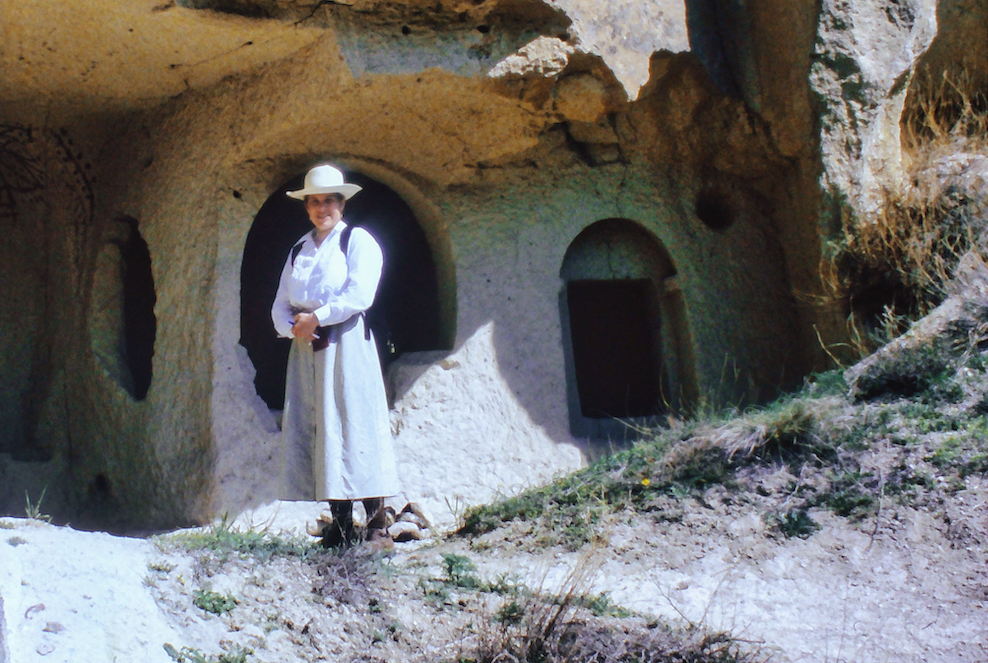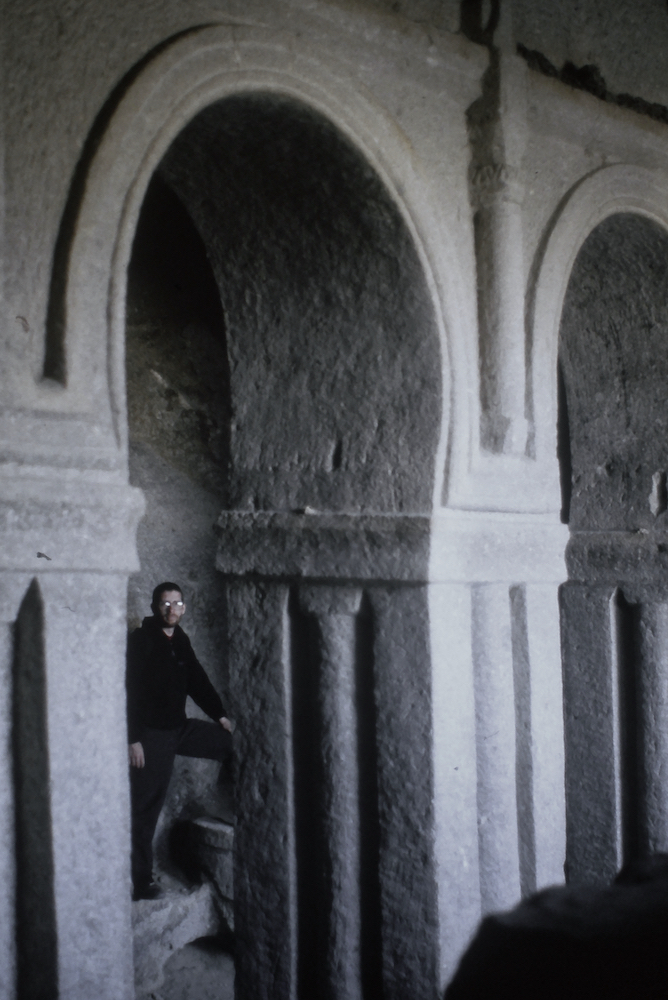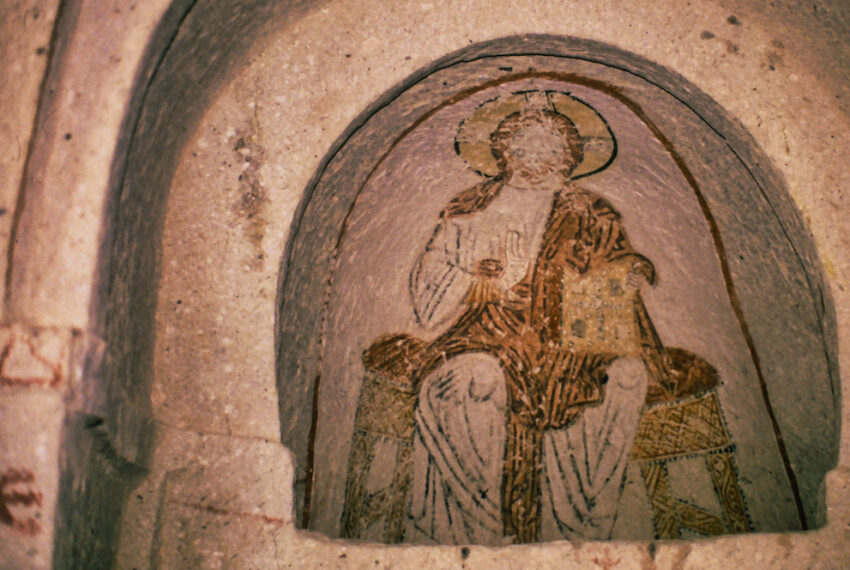4/7/98: First day of Qurban Bayrami, a five-day holiday commemorating Abraham’s willingness to obey God’s command to sacrifice his beoved son… Ishmael! We slept in, too tired to rise early for the cutting ceremonies. Visited the “open air museum” consisting of hundreds of caves in which Christians lived and hid during the Roman persecutions of the early Church era. Definitely worth the price of admission. Ruth turned in early. I lounged with the other guests in the common room and tried to pick up some tips on how to play the saz (a sort of Turkish mandolin) from Chengis. Too many frets for me to figure out in such a short time though.
4/7/23: Qurban Bayrami and the Islamic festival of Eid al-Adha is worth deeper reflection, so I have written a separate post on that, which you can read here.
In this post, I simply want to briefly reflect on the meaning of those caves in Cappadokia. While abandoned, weather-worn and in many cases collapsed or broken, they remain as historical evidence of “The Way” of Jesus (Acts 24:14) and the Roman persecution of those early Christians because of their counter-cultural way of living.
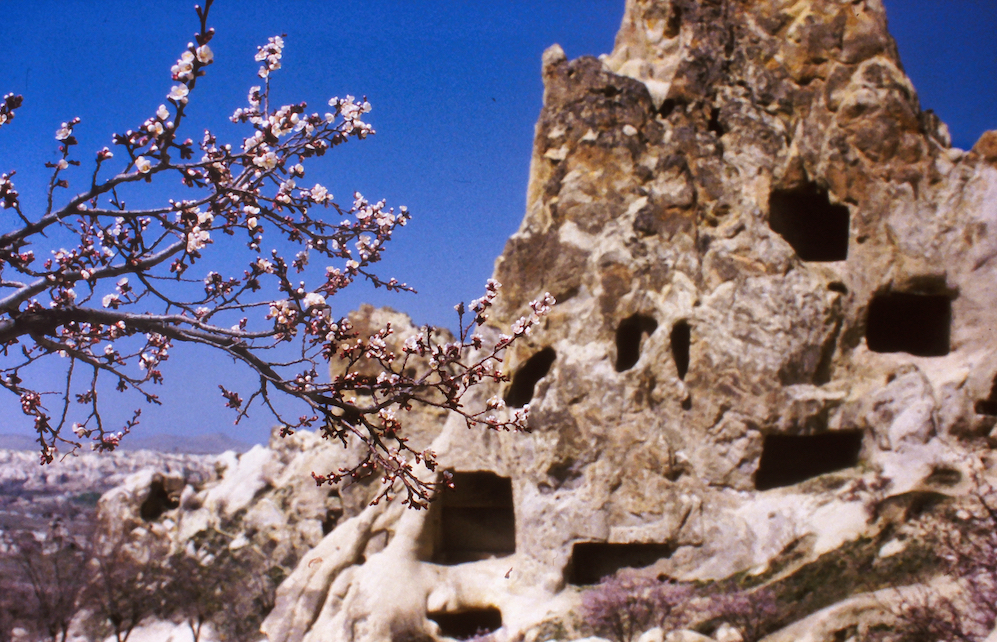
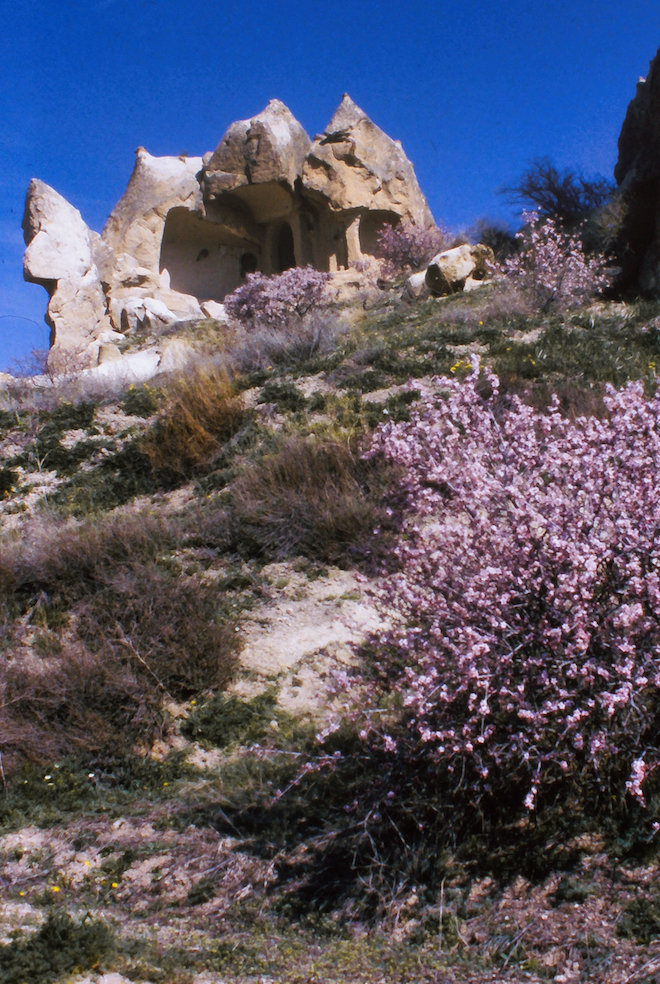
Timothy Keller recently tweeted:
“Roman Empire: ‘You Christians are too exclusive. You threaten the social order because you won’t honor all deities.’ Modern West: ‘You Christians are too exclusive. You threaten the social order because you won’t honor all identities.”
—Timothy Keller (@timkellernyc) tweeted at 5:23 AM on Thu, Apr 06, 2023 (link)
Roman Emperors, governors and citizens hated, imprisoned and killed early Christians because their beliefs and lifestyles called into question immoral practices of the day, such as infanticide, slavery, hedonism, sexual promiscuity and immorality. Keller deftly points out that we in the world today have our own idols that we don’t tolerate being called into question, particularly the exaltation and worship of Self.
The Christians in Cappadokia fled persecution and hid in the limestone caves of the unusual landscape. They eventually carved into the stone elaborate arches, passageways and rooms to use for homes and churches. Many frescoes painted in these once underground churches still remain, though faded and deteriorating.
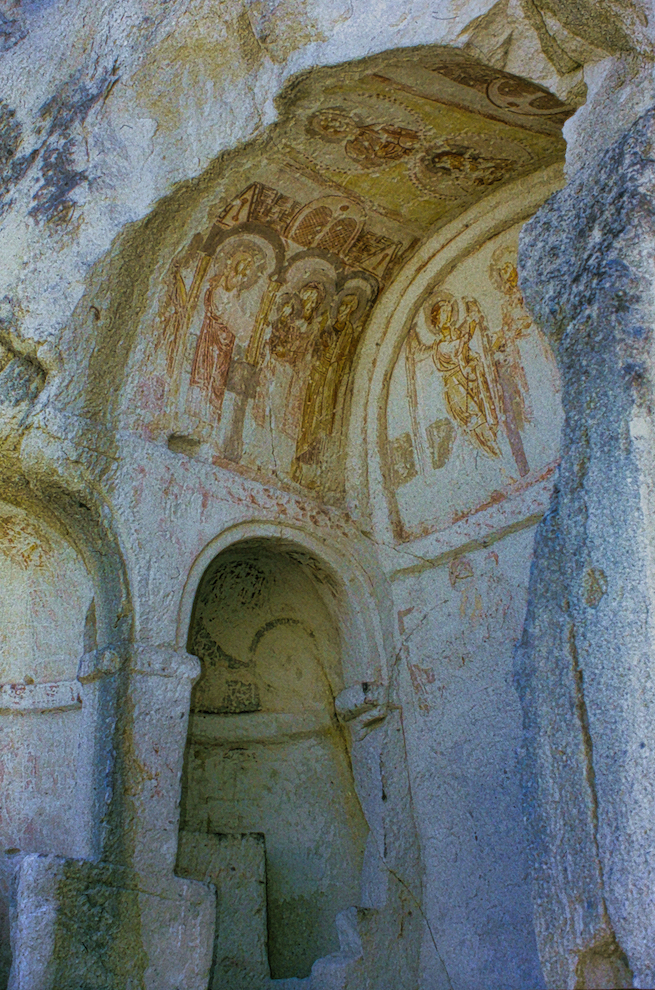
Today, Christians are still called to live counter-cultural lives. Too often this responsibility gets conflated with politics and other forms of triumphalism, and is rationalized by a fear of persecution (whether sometimes actual or sometimes imagined). Actions speak louder than words. Our actions and words must be cohesive and coherent.
Speaking to early Christians who were persecuted for their counter-cultural living, the Apostle Peter wrote about the importance of living holy lives as a witness as well as living with a winsome posture rather than a hostile one:
1 Peter 2:9-17 (ESV)
11 Beloved, I urge you as sojourners and exiles to abstain from the passions of the flesh, which wage war against your soul. 12 Keep your conduct among the Gentiles honorable, so that when they speak against you as evildoers, they may see your good deeds and glorify God on the day of visitation.
13 Be subject for the Lord’s sake to every human institution, whether it be to the emperor as supreme, 14 or to governors as sent by him to punish those who do evil and to praise those who do good. 15 For this is the will of God, that by doing good you should put to silence the ignorance of foolish people. 16 Live as people who are free, not using your freedom as a cover-up for evil, but living as servants of God. 17 Honor everyone. Love the brotherhood. Fear God. Honor the emperor.
Peter knew from experience that showing and speaking the Gospel would result in persecution. So he also wrote:
1 Peter 4:12-14 (ESV)
12 Beloved, do not be surprised at the fiery trial when it comes upon you to test you, as though something strange were happening to you. 13 But rejoice insofar as you share Christ’s sufferings, that you may also rejoice and be glad when his glory is revealed. 14 If you are insulted for the name of Christ, you are blessed, because the Spirit of glory and of God rests upon you.
I was deeply moved by the examples of those early Christians while walking through some of those caves in Cappadokia. I am a Christian, and I want to live my life as faithfully as they did, regardless of the circumstances or consequences. God help me, and God help the Church today, to live holy and humble lives, so that others might be so surprised by our words and deeds that they may come to know His grace and love.
